-
 Bitcoin
Bitcoin $88,165.3830
4.45% -
 Ethereum
Ethereum $1,625.6684
3.15% -
 Tether USDt
Tether USDt $1.0003
0.03% -
 XRP
XRP $2.1145
3.08% -
 BNB
BNB $604.2805
2.78% -
 Solana
Solana $138.5597
1.63% -
 USDC
USDC $1.0000
0.01% -
 Dogecoin
Dogecoin $0.1611
5.18% -
 TRON
TRON $0.2438
-0.44% -
 Cardano
Cardano $0.6351
3.76% -
 Chainlink
Chainlink $13.3718
1.88% -
 Avalanche
Avalanche $20.6518
6.55% -
 UNUS SED LEO
UNUS SED LEO $9.1179
-2.25% -
 Stellar
Stellar $0.2584
6.98% -
 Toncoin
Toncoin $2.9759
-0.58% -
 Shiba Inu
Shiba Inu $0.0...01257
1.46% -
 Sui
Sui $2.2444
7.11% -
 Hedera
Hedera $0.1708
4.15% -
 Bitcoin Cash
Bitcoin Cash $345.2115
3.88% -
 Polkadot
Polkadot $3.8920
0.39% -
 Litecoin
Litecoin $79.7901
4.89% -
 Hyperliquid
Hyperliquid $18.0228
3.58% -
 Dai
Dai $0.9999
0.00% -
 Bitget Token
Bitget Token $4.4675
1.86% -
 Ethena USDe
Ethena USDe $0.9993
0.00% -
 Pi
Pi $0.6375
1.55% -
 Monero
Monero $214.7310
-1.32% -
 Uniswap
Uniswap $5.4128
3.57% -
 Pepe
Pepe $0.0...07912
5.87% -
 Aptos
Aptos $5.0623
1.32%
How to recharge CoinEx contract
Recharging your CoinEx contract account is a crucial step to leverage your assets for potential profit in the cryptocurrency market.
Nov 26, 2024 at 08:08 am

A Comprehensive Guide to CoinEx Contract Recharging
CoinEx, a leading cryptocurrency exchange, offers a reliable and user-friendly contract trading platform that enables traders to leverage their assets for potential profit. Recharging your CoinEx contract account is an essential step in participating in this exciting trading arena. This guide will provide you with a step-by-step walkthrough, addressing all potential questions and ensuring a seamless recharging process.
Steps to Recharge CoinEx Contract Account:
Access CoinEx Contract Trading Platform:
- Log in to your CoinEx account and navigate to the "Contracts" section.
- Select the desired trading pair (e.g., BTC/USDT) from the left-hand menu.
Transfer Funds to Contract Account:
- Click on the "Transfer" button located in the "Wallet" section.
- Select "Spot Account" under "From" and "Contract Account" under "To."
- Enter the amount of funds you wish to transfer and type in your verification code.
- Complete the transfer request by clicking "Confirm Transfer."
Check Contract Balance:
- Once the transfer is processed, check your contract balance to confirm the funds have been deposited.
- Hover over the "Balance" section displayed under the trading chart.
- The "Available Balance" reflects the amount of funds you can use for trading.
Additional Considerations:
- Ensure you have transferred sufficient funds to cover both margin and trading fees.
- Review market conditions and your trading strategy before placing any orders.
- Consider using a stop-loss order to limit potential losses.
- Close your positions and withdraw funds whenever necessary to manage your risk exposure.
Frequently Asked Questions:
Q1: What is the minimum amount required to recharge my contract account?
- The minimum amount for recharging your contract account varies depending on the asset you are transferring. Generally, it is set to a small amount that allows for various trading strategies.
Q2: How long does it take to recharge my contract account?
- Transfers between your spot and contract accounts occur instantly. You should see the transferred funds reflected in your contract balance within seconds.
Q3: Are there any fees associated with recharging my contract account?
- CoinEx does not charge any fees for transferring funds between your spot and contract accounts. However, you may incur network fees depending on the asset and blockchain being used.
Q4: Can I recharge my contract account using cryptocurrencies other than the trading pair I am using?
- Yes, you can recharge your contract account using a different cryptocurrency. However, you will need to convert the deposited cryptocurrency into the trading pair you wish to use.
Q5: What should I do if I encounter any issues during the recharging process?
- If you experience any problems while recharging your contract account, you can contact CoinEx support for assistance. They will guide you through the troubleshooting process and resolve any technical difficulties.
Disclaimer:info@kdj.com
The information provided is not trading advice. kdj.com does not assume any responsibility for any investments made based on the information provided in this article. Cryptocurrencies are highly volatile and it is highly recommended that you invest with caution after thorough research!
If you believe that the content used on this website infringes your copyright, please contact us immediately (info@kdj.com) and we will delete it promptly.
- As the Crypto Market Evolves, XRP and Dogecoin Are Back in the Spotlight
- 2025-04-22 00:00:44
- Onchain social media platform Zora said its ZORA token will go live
- 2025-04-22 00:00:44
- Bitcoin Eyes $88,000 Breakout as Safe-Haven Narrative Gains Steam
- 2025-04-21 23:55:12
- As the Cryptocurrency Market Begins to Recover and Bitcoin Moves Closer to the $90,000 Mark, Investor Interest Is Gradually Returning
- 2025-04-21 23:55:12
- Blurring the Lines Between Decentralized Finance and Traditional Finance, Ripple's XRP Ledger (XRPL) Is at the Center of a New Attempt to Integrate Blockchain into the Heart of Institutional Trading
- 2025-04-21 23:50:13
- MicroStrategy Adds Another $555M Bitcoin Buy to Its Portfolio as BTC Trades Near $85K
- 2025-04-21 23:50:13
Related knowledge
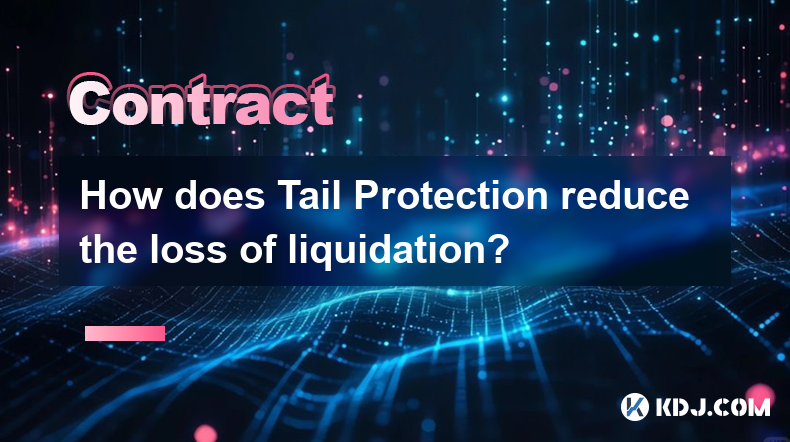
How does Tail Protection reduce the loss of liquidation?
Apr 11,2025 at 01:50am
Introduction to Tail Protection in CryptocurrencyTail Protection is a mechanism designed to mitigate the risks associated with liquidation in cryptocurrency trading. Liquidation occurs when a trader's position is forcibly closed by the exchange due to insufficient margin to cover potential losses. This often happens in leveraged trading, where traders b...
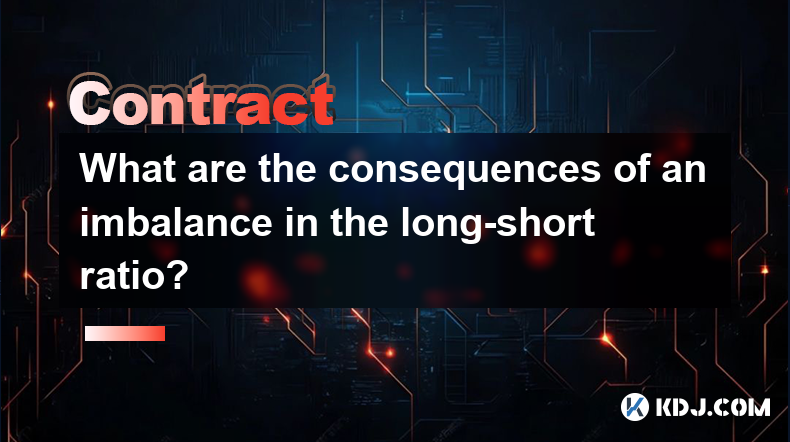
What are the consequences of an imbalance in the long-short ratio?
Apr 13,2025 at 02:50pm
The long-short ratio is a critical metric in the cryptocurrency trading world, reflecting the balance between bullish and bearish sentiments among traders. An imbalance in this ratio can have significant consequences on the market dynamics, affecting everything from price volatility to trading strategies. Understanding these consequences is essential fo...
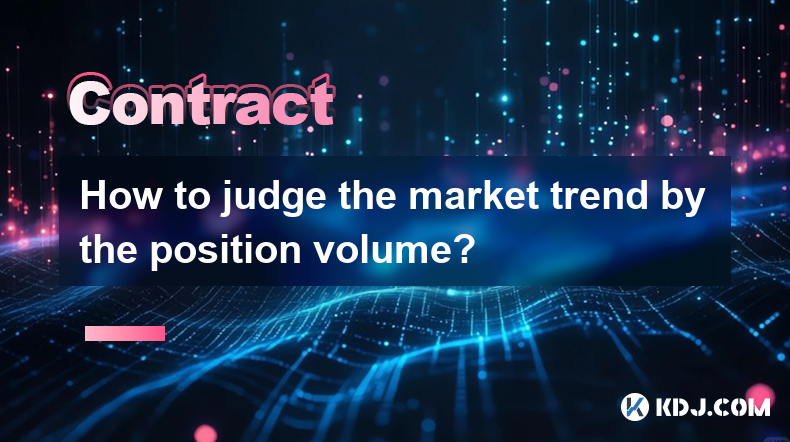
How to judge the market trend by the position volume?
Apr 11,2025 at 02:29pm
Understanding how to judge the market trend by position volume is crucial for any cryptocurrency trader. Position volume, which refers to the total number of open positions in a particular cryptocurrency, can provide valuable insights into market sentiment and potential price movements. By analyzing this data, traders can make more informed decisions ab...

Why does a perpetual contract have no expiration date?
Apr 09,2025 at 08:43pm
Perpetual contracts, also known as perpetual futures or perpetual swaps, are a type of derivative product that has gained significant popularity in the cryptocurrency market. Unlike traditional futures contracts, which have a fixed expiration date, perpetual contracts do not expire. This unique feature raises the question: why does a perpetual contract ...
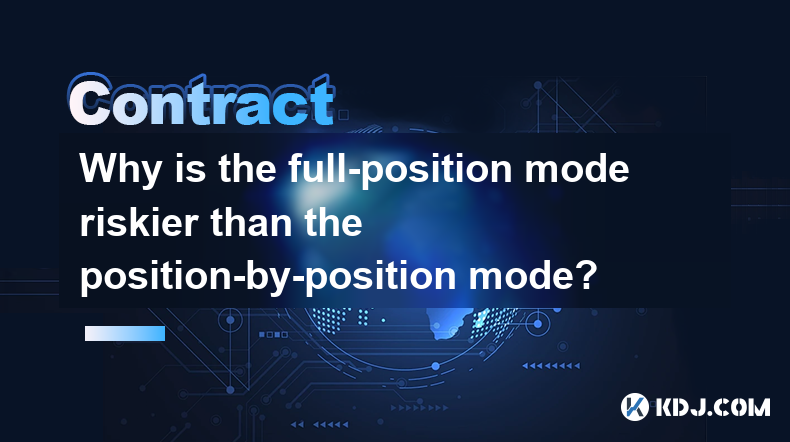
Why is the full-position mode riskier than the position-by-position mode?
Apr 13,2025 at 03:42pm
Why is the Full-Position Mode Riskier Than the Position-by-Position Mode? In the world of cryptocurrency trading, the choice between full-position mode and position-by-position mode can significantly impact the risk profile of a trader's portfolio. Understanding the differences between these two modes is crucial for making informed trading decisions. Th...
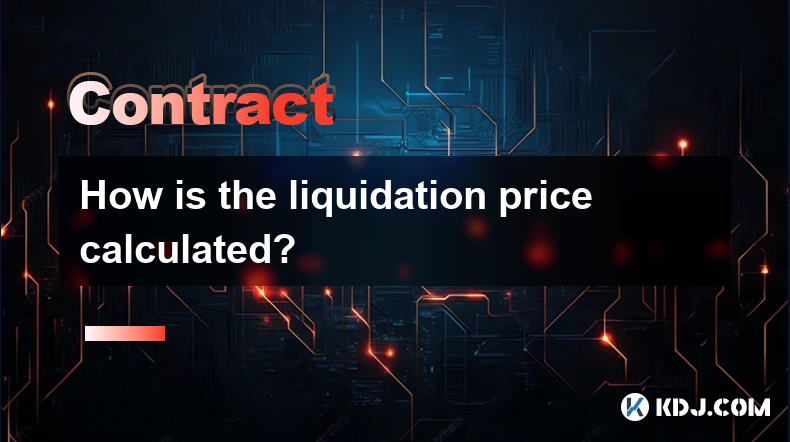
How is the liquidation price calculated?
Apr 12,2025 at 01:35am
Introduction to Liquidation PriceLiquidation price is a critical concept in the world of cryptocurrency trading, particularly when dealing with leveraged positions. Understanding how this price is calculated is essential for traders to manage their risk effectively. The liquidation price is the point at which a trader's position is forcibly closed by th...

How does Tail Protection reduce the loss of liquidation?
Apr 11,2025 at 01:50am
Introduction to Tail Protection in CryptocurrencyTail Protection is a mechanism designed to mitigate the risks associated with liquidation in cryptocurrency trading. Liquidation occurs when a trader's position is forcibly closed by the exchange due to insufficient margin to cover potential losses. This often happens in leveraged trading, where traders b...

What are the consequences of an imbalance in the long-short ratio?
Apr 13,2025 at 02:50pm
The long-short ratio is a critical metric in the cryptocurrency trading world, reflecting the balance between bullish and bearish sentiments among traders. An imbalance in this ratio can have significant consequences on the market dynamics, affecting everything from price volatility to trading strategies. Understanding these consequences is essential fo...

How to judge the market trend by the position volume?
Apr 11,2025 at 02:29pm
Understanding how to judge the market trend by position volume is crucial for any cryptocurrency trader. Position volume, which refers to the total number of open positions in a particular cryptocurrency, can provide valuable insights into market sentiment and potential price movements. By analyzing this data, traders can make more informed decisions ab...

Why does a perpetual contract have no expiration date?
Apr 09,2025 at 08:43pm
Perpetual contracts, also known as perpetual futures or perpetual swaps, are a type of derivative product that has gained significant popularity in the cryptocurrency market. Unlike traditional futures contracts, which have a fixed expiration date, perpetual contracts do not expire. This unique feature raises the question: why does a perpetual contract ...

Why is the full-position mode riskier than the position-by-position mode?
Apr 13,2025 at 03:42pm
Why is the Full-Position Mode Riskier Than the Position-by-Position Mode? In the world of cryptocurrency trading, the choice between full-position mode and position-by-position mode can significantly impact the risk profile of a trader's portfolio. Understanding the differences between these two modes is crucial for making informed trading decisions. Th...

How is the liquidation price calculated?
Apr 12,2025 at 01:35am
Introduction to Liquidation PriceLiquidation price is a critical concept in the world of cryptocurrency trading, particularly when dealing with leveraged positions. Understanding how this price is calculated is essential for traders to manage their risk effectively. The liquidation price is the point at which a trader's position is forcibly closed by th...
See all articles






















































































